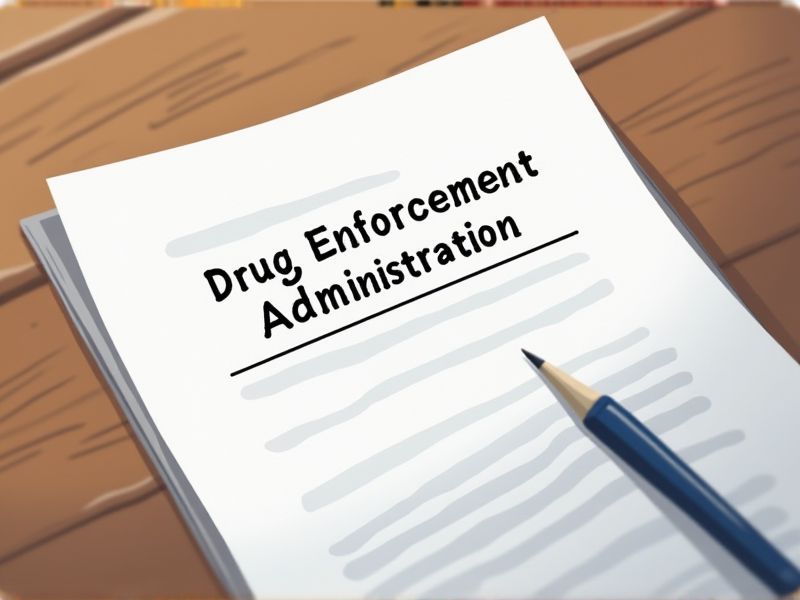
Drug Enforcement Administration Agents face complex challenges in tackling illegal drug activities, which demand a specialized skill set. Certifications provide them with the necessary expertise in areas like drug identification, intelligence analysis, and tactical operations. These qualifications enable agents to perform duties effectively, ensuring they are equipped to handle the intricate nature of drug enforcement. Important certifications for becoming a Drug Enforcement Administration Agent include the following.
DEA Basic Special Agent Training Certification
DEA Basic Special Agent Training Certification is essential because it equips agents with the necessary skills to handle complex drug-related investigations. Without this certification, agents may lack critical knowledge on federal law enforcement protocols, which could compromise the effectiveness of operations. The training ensures that agents are adept at handling the physical and legal challenges encountered in the field. Ultimately, the certification plays a vital role in maintaining professional standards and ensuring agents uphold the integrity of the DEA.
Federal Law Enforcement Training Accreditation (FLETA) Certification
FLETA certification ensures that DEA agents receive consistent, high-quality training, aligning with established federal standards. Through accredited programs, agents develop necessary skills to effectively combat drug-related crimes while maintaining legal and ethical guidelines. Accreditation enhances accountability and transparency in training, promoting public trust in drug enforcement efforts. Properly trained agents with FLETA certification can better adapt to evolving challenges in the field, leading to more efficient and safer operations.
Narcotics Investigation Certification
Narcotics Investigation Certification equips DEA agents with specialized skills to effectively identify and dismantle drug trafficking networks, crucial for disrupting illegal drug operations. This certification provides agents with the latest techniques in surveillance and undercover operations, enhancing their capability in the field. With comprehensive training, agents gain a thorough understanding of drug-related laws and regulations, ensuring legal procedures are followed. Certification also boosts credibility in court, as agents are recognized as expert witnesses, strengthening prosecution cases against drug offenders.
Criminal Investigations Certification
A Criminal Investigations Certification equips Drug Enforcement Administration agents with the specialized knowledge needed for comprehensive drug-related investigations. This certification enhances their skills in evidence collection, analysis, and legal procedures, which helps in building strong cases against criminals. Certified agents are also better prepared to navigate complex criminal networks involved in drug trafficking. This recognition of expertise ensures a higher standard of professionalism and effectiveness in enforcing drug laws.
Firearms Proficiency Certification
Firearms Proficiency Certification is needed for DEA agents to ensure their ability to handle weapons safely in high-risk operations. Drug enforcement often involves encounters with armed suspects, requiring agents to efficiently neutralize threats. Proficiency minimizes the likelihood of accidental discharge, safeguarding both agents and civilians. Certification also maintains standardized training across the agency, ensuring consistent preparedness.
Defensive Tactics and Use-of-Force Certification
Drug Enforcement Administration agents often confront dangerous and unpredictable situations involving drug traffickers, which necessitates a proficiency in defensive tactics. Such certification ensures agents can effectively protect themselves and others when interactions escalate to violence. Proper training in use-of-force encourages adherence to legal and ethical standards, minimizing liabilities and misuse of authority. Certification also reinforces national consistency in agents' responses, ensuring standardized practice across various assignments.
Emergency Medical Technician (EMT) Certification
EMT certification equips DEA agents with crucial medical skills to manage life-threatening situations during operations. High-risk environments often require immediate medical intervention before professional medical help arrives, making EMT training invaluable. DEA agents encounter individuals who may be under the influence of drugs or experiencing overdoses, necessitating proficient medical response capability. Understanding medical protocols and emergency care improves operational outcomes and reinforces agent safety in unpredictable scenarios.
Cybercrime Investigation Certification
The rise in cybercrime requires Drug Enforcement Administration (DEA) agents to effectively trace and interpret digital evidence linked to drug trafficking. Cybercrime investigation certification equips agents with the necessary skills to navigate complex networks and identify illicit online activities. This certification helps ensure DEA agents understand the digital ecosystem used by drug traffickers for communication and transactions. As drug cartels increasingly exploit cyberspace for operations, having certified expertise becomes crucial for dismantling these networks efficiently.
Digital Forensics and Evidence Analysis Certification
Digital Forensics and Evidence Analysis Certification equips Drug Enforcement Administration agents with specialized skills to analyze electronic data, crucial in modern drug trafficking cases where communication often occurs digitally. This certification enhances the agent's ability to trace financial transactions and communications that are often used in drug networks. By obtaining this certification, agents can ensure the integrity and admissibility of digital evidence in court, strengthening prosecutions. It also keeps agents updated with the latest technological advancements, which are essential in effectively combating increasingly sophisticated drug operations.
Crisis Intervention and Behavioral Health Certification
Crisis intervention and behavioral health certification equips DEA agents with essential skills in managing high-stress situations effectively, reducing potential harm. Understanding behavioral health allows agents to recognize signs of mental distress, facilitating appropriate responses during drug-related interventions. Enhanced training in these areas improves communication and de-escalation tactics, increasing the likelihood of peaceful resolutions. A certified agent's ability to address mental health concerns can lead to better outcomes in combating drug misuse and its related consequences.
Summary
Acquiring certifications can enhance your credibility and expertise as a Drug Enforcement Administration Agent. These certifications often lead to greater job opportunities and career advancements. You can expect improved skills in handling complex drug-related cases. This can result in increased effectiveness and efficiency in law enforcement roles.
